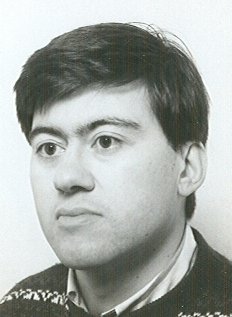Teun Tieleman, born in De Meern, the Netherlands, in 1960. Ph.D. from Utrecht University. Lecturer in Classics at Lauwers College, Buitenpost.
Fellow (1 September 2000 – 31 January 2001)
Galen of Pergamon (129-c213 CE) is one of the fountainheads of the Western medical tradition. He was not only an immensely influential medical theorist and practitioner but also a philosopher of note. His prodigious oeuvre is one of the largest extant of Graeco-Roman antiquity. I have been mainly concerned with two subjects: First, Galen’s theory on emotions and his response to earlier and contemporary authorities in this area; secondly, Galen’s use of anatomical experiments and his ideas on their epistemological role and status. My work on the first subject brings out the fundamental role played by the procedures belonging to the so-called doxographic literary genre. Galen’s extensive quotations from earlier authorities have little to do with the aims and methods of modern historiography but belong to a procedure featuring doxographic schemas of available options on particular questions. Authorities and their words were tagged on to the different options according to these pre-existing schemas and become distorted in the process. My second research theme focused on the status of fundamental premises (‘axioms’) as witnessed by Galen’s experimentation as well as its supposed rhetorical function as a theatrical (and traditional) means of establishing his reputation as a doctor. Both sub-themes bear directly on the question how far Galen can be said to have viewed science as an open-ended pursuit of truth. All the above themes and questions are immediately relevant to the question of rationality as studied by the nucleus “Rethinking the History of Medicine”, of which I was a member during this NIAS year.
